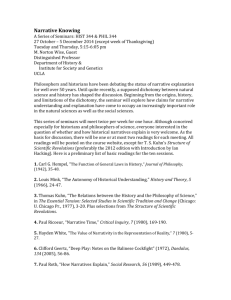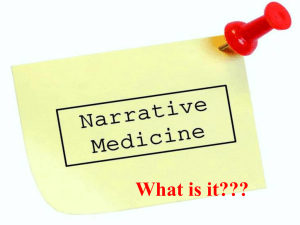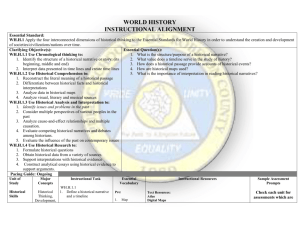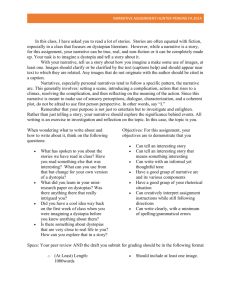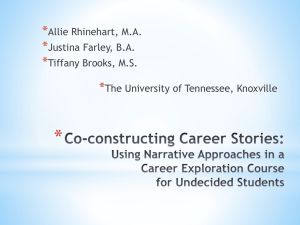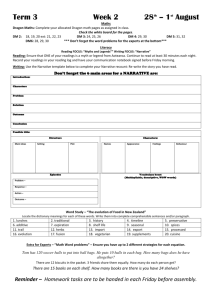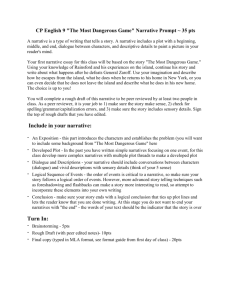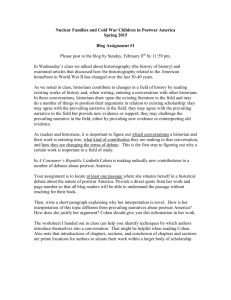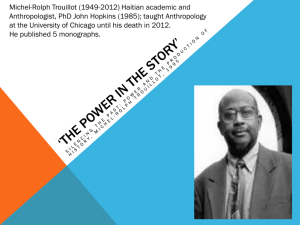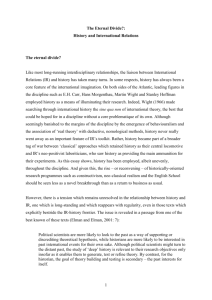HIST 4500 Week 9
advertisement
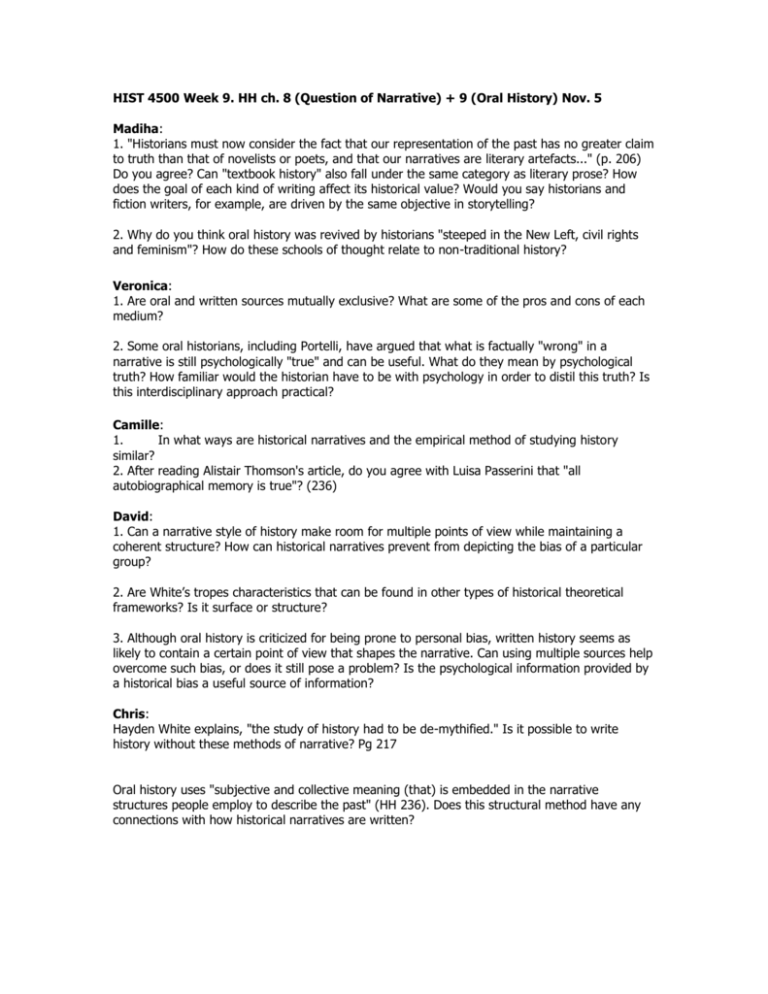
HIST 4500 Week 9. HH ch. 8 (Question of Narrative) + 9 (Oral History) Nov. 5 Madiha: 1. "Historians must now consider the fact that our representation of the past has no greater claim to truth than that of novelists or poets, and that our narratives are literary artefacts..." (p. 206) Do you agree? Can "textbook history" also fall under the same category as literary prose? How does the goal of each kind of writing affect its historical value? Would you say historians and fiction writers, for example, are driven by the same objective in storytelling? 2. Why do you think oral history was revived by historians "steeped in the New Left, civil rights and feminism"? How do these schools of thought relate to non-traditional history? Veronica: 1. Are oral and written sources mutually exclusive? What are some of the pros and cons of each medium? 2. Some oral historians, including Portelli, have argued that what is factually "wrong" in a narrative is still psychologically "true" and can be useful. What do they mean by psychological truth? How familiar would the historian have to be with psychology in order to distil this truth? Is this interdisciplinary approach practical? Camille: 1. In what ways are historical narratives and the empirical method of studying history similar? 2. After reading Alistair Thomson's article, do you agree with Luisa Passerini that "all autobiographical memory is true"? (236) David: 1. Can a narrative style of history make room for multiple points of view while maintaining a coherent structure? How can historical narratives prevent from depicting the bias of a particular group? 2. Are White’s tropes characteristics that can be found in other types of historical theoretical frameworks? Is it surface or structure? 3. Although oral history is criticized for being prone to personal bias, written history seems as likely to contain a certain point of view that shapes the narrative. Can using multiple sources help overcome such bias, or does it still pose a problem? Is the psychological information provided by a historical bias a useful source of information? Chris: Hayden White explains, "the study of history had to be de-mythified." Is it possible to write history without these methods of narrative? Pg 217 Oral history uses "subjective and collective meaning (that) is embedded in the narrative structures people employ to describe the past" (HH 236). Does this structural method have any connections with how historical narratives are written? Michael: 1. When White mentions that history is hard to determine by fact, but rather by perspective is the not going into a more postmodern perspective of history? And is our interest in history mostly based off the romantic point of view of it? 2. When talking about Oral History, can we as historians use it not only to find out the information that we want to know, but is it a useful tool to also confirm or shift are knowledge about events in history? Sarah: Is a linguistic paradigm as pertinent to oral tradition as it is to a narrative ? Is there similar value placed on a fictional narrative vs a factual narrative as a scholarly source ? Do you place the same value ? Is a history writer confined to using similar tropes all the time ? And if they vary does it de-value prior work ? Sonia: According to Hadyen White, “Historians had lost sight of the value of ‘historical imagination’ for understanding the human conditions and he pointed to ‘history’s golden age’ was between 1800 and 1850.” What does he mean by that? 2. What does Luisa Passerini say about Oral History?

